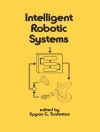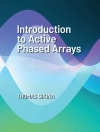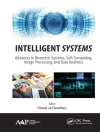This book presents the select peer-reviewed proceedings of the 2nd International Conference on Emerging Electronics & Automation (E2A) 2022. The proceedings aim to provide the reader with a view of the latest scientific efforts and achievements of the participants in the emerging fields including instrumentation, control, signal processing, communication, and associated computational techniques. It covers diverse fields of electronics, computation, automation, microelectronic technology, nanomaterials, and biomedical engineering applications. This volume will be of interest to those in academia and industry.
विषयसूची
A Computational Aspect to Analyse Impact of Nutritional Status on the Development of Cardiovascular Diseases.- Vernacular Language Handwriting Recognition using Deep Learning Techniques.- FPGA Implementation of Efficient Softmax Architecture for Deep Neural Networks.- Multi-stage and multi-objective dynamic optimization-based scheduling of uncertain hybrid renewable energy systems with real-time energy compensation.- Design of Regenerative Snubber Circuit for Motor Drivers.- Clustering based multi-objective stochastic optimization approach in scheduling optimal energy dispatch of multiple energy sources in the presence of uncertainty.- Unfalsified Adaptive Control of a Robotic System.- Semi-Active Control for Seismic Vibration Mitigation of Building System with Magnetorheological Damping Device.- Relative Ageing of Population and Subpopulations in Proportional Reversed Hazard Frailty Models.- Handwritten Word Recognition in English Language.- Digital Image Watermarking Using Integer Wavelet Transform and Singular Value Decomposition.- Effect of Shallow Learning Techniques and Feature Selection for Breast Cancer Detection.- Design and Development of a Optimized Fast Transformation Module (Op FTM) for GAN Accelerator with Computation Efficiency.- A Meta-heuristic Optimized-based Classification Intrusion Detection System for Bo T-Io T.- Fusion Spectrogram for Sound Classification Using 2D Convolutional Neural Network.- Design and Implementation of Garbage Detection and Classification Using YOLO-V5.- Simulations towards design of Matching Layer in Acoustic Emission Sensor.- Virtual Impedance Based Advanced Droop Control for Improved Dynamic Power Sharing in Islanded Microgrid.- A Parallel Signal Detector Approach for Detection of Human Activities Using Multiple Seismic Sensors.- Study of Dielectric Characteristics of Forsterite Based Medical Implant.- Performance Evaluation and Assessment of 100k W Grid Tied SPV System in Subtropical Climatic Conditions.- Analysis and Experimental Validation of SPWM and SVPWM Techniques on Two-level Three-phase VSI.- Performance Analysis of Fuzzy Logic with P&O MPPT for Grid Connected Solar PV System under Varying Solar Irradiance.- Switched-Boost-Modified Z-Source Inverter for Renewable Energy Application.- Vibration Energy Harvester using piezoelectric with truncated cone rectangular beam structure for low power applications.
लेखक के बारे में
Moncef Gabbouj is Professor of Information Technology at the Department of Computing Sciences, Tampere University, Finland. His research interests include artificial intelligence, machine learning, pattern recognition, and signal processing. Dr. Gabbouj is a Fellow of the IEEE and Asia-Pacific Artificial Intelligence Association. He is member of the Academia Europaea, the Finnish Academy of Science and Letters and the Finnish Academy of Engineering Sciences.
Shyam Sudhir Pandey completed his Ph D from, National Physical Laboratory, New Delhi, India in 1997 and came to Japan as postdoctoral fellow (1998-2001). He was JSPS post-doctoral fellow from 2001-2003 (Soft-actuators & Artificial Muscles) and Knowledge Cluster invited researcher from 2003-2007 (Protein Biochips). He received National Technology Award from NRDC India in 2005 for the development of Glucose Biosensors, which are currently being manufactured and marketed. He joined the Kyushu Institute of Technology (Kyu550presentations in domestic and International conferences and 30 patents in India, Japan Europe and USA. His research interests deal with the Dye-Sensitized and Organic Solar Cells, Quantum Chemical Calculations, Organic Electronics & optoelectronics, Organic Conducting Polymers, Biosensors and Protein Biochips. Hari Krishna Garg (HKG) received BTech degree in electrical engineering from the Indian Institute of Technology (IIT), Delhi, MEng & Ph D from Concordia University, Montreal, PQ, Canada, & MBA from Syracuse University, Syracuse, NY, USA. Previously he was faculty at the Electrical and Computer Engineering (ECE) Department at Syracuse University. Currently, he is with the ECE Department at the National University of Singapore. His interests and passion encompass all things ‘enterprise’. He has founded many start-ups with a mixed record of success. HKG writes Hindi poems & croons a song or two from Bollywood.
Ranjay Hazra, Senior IEEE Member completed his Ph D from the Indian Institute of Technology (IIT) Roorkee, India in 2016 in the area of Communication Systems. His research interests include 5G and beyond communication, Signal & Image Processing, Medical Imaging, and Blockchain Technology. He has been working as an Assistant Professor in the Department of Electronics and Instrumentation Engineering, National Institute of Technology (NIT) Silchar, India since 2016. He has been awarded 2 International Patents till date. He is the Chief Investigator of 2 Govt. funded research projects of which one is funded by Mei Ty and the other by SPARC, Mo E. He is also the recipient of the SIRE fellowship from SERB, DST, India for the year 2023-24. He has published 45 research articles and supervised 3 Ph D students to date.












